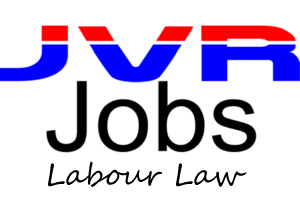Empowering Employee Rights in South Africa: A Comprehensive Exploration
Employee rights are the cornerstone of a just and equitable workplace, ensuring that workers are treated with dignity, respect, and fairness. In South Africa, a country with a history of social inequalities, recognizing and protecting employee rights is of paramount importance. This article delves deep into the realm of employee rights, shedding light on anti-discrimination laws, the right to join trade unions, and the legal framework that empowers employees to thrive in their workplaces.
Anti-Discrimination Laws and Equal Treatment:
- Constitutional Protections: The South African Constitution guarantees the right to equality and prohibits discrimination on various grounds, including race, gender, age, religion, disability, and sexual orientation.
- Employment Equity Act (EEA): The EEA aims to rectify past imbalances and promote equal opportunities. It obliges employers to implement affirmative action measures to ensure that workplaces reflect the diversity of the nation.
- Unfair Discrimination: Employees have the right to be free from unfair discrimination in all aspects of employment, including recruitment, remuneration, promotion, and training.
- Reasonable Accommodation: Employers are required to make reasonable accommodations for employees with disabilities, ensuring that they can perform their jobs effectively.
Right to Join Trade Unions and Bargain Collectively:
- Trade Union Rights: Employees have the constitutional right to join trade unions of their choice. Trade unions play a pivotal role in representing employees’ interests, negotiating employment terms, and advocating for improved working conditions.
- Collective Bargaining: Trade unions engage in collective bargaining with employers to negotiate employment terms, including wages, benefits, and working conditions. These negotiations are legally binding once an agreement is reached.
- Protection Against Retaliation: Employers are prohibited from unfairly dismissing or discriminating against employees who exercise their right to join trade unions or participate in union activities.
Additional Employee Rights:
- Right to Fair Labour Practices: The Constitution guarantees the right to fair labour practices, including fair treatment, just working conditions, and protection against unfair dismissal.
- Privacy and Dignity: Employees have the right to privacy and dignity in the workplace, ensuring that their personal information and dignity are respected.
- Protected Whistleblowing: Employees who expose corruption, malpractice, or other wrongdoing in the workplace are protected from retaliation.
- Health and Safety: Employees have the right to a safe working environment and protection from occupational hazards.
Empowering Employees and Fostering Equality:
Empowering employee rights is not only a legal obligation but also a moral imperative. By upholding anti-discrimination laws, embracing diversity, and respecting the right to join trade unions, South African workplaces can become inclusive, dynamic, and just. For employees, understanding their rights equips them to actively participate in shaping their work experiences and advocating for their well-being. For employers, acknowledging and respecting these rights leads to a harmonious workplace that fosters mutual respect, cooperation, and collective growth.
